In Florida, the demand for Home Health Aides (HHAs) is soaring, driven by an aging population and an increasing preference for personalized, home-based care. These compassionate caregivers play a vital role in improving patient outcomes, offering independence to seniors, and saving costs in the healthcare system.
As we enter 2024, the field of HHAs is evolving with new challenges, opportunities, and innovations. This article delves into why HHAs are critical in Florida’s healthcare landscape, the trends shaping the profession, and why pursuing this career can lead to a fulfilling future.
Florida’s elderly population, among the fastest-growing in the U.S., is projected to reach 7.5 million by 2040. This rapid demographic shift highlights a significant demand for home health care services, as more seniors prefer to “age in place.” Unlike institutional care, home-based services empower patients to maintain their independence while staying connected to their loved ones.
Cost-Efficiency: Expanding home-based services could save Florida $745 million annually, as reported by state health studies.
Patient-Centric Care: HHAs ensure personalized attention and emotional support, fostering better health outcomes.
Pandemic Resilience: During COVID-19, home care proved safer, with lower infection rates compared to nursing homes.
With these advantages, HHAs are increasingly becoming the backbone of Florida’s healthcare delivery model.
HHAs are tasked with diverse duties to ensure the well-being of patients. These include:
Assistance with Daily Living: Helping patients with dressing, bathing, and grooming.
Medication Management: Ensuring adherence to prescribed medication schedules.
Meal Preparation and Nutrition: Preparing meals tailored to the patient’s dietary needs.
Companionship and Emotional Support: Alleviating loneliness through meaningful interaction.
Health Monitoring: Checking vital signs and reporting changes to healthcare professionals.
Their holistic care approach allows patients to recover and thrive in their home environment, setting HHAs apart as a vital profession.
Innovative tools are empowering HHAs to deliver better care:
Wearable Health Devices: Real-time tracking of vitals for proactive interventions.
Telehealth: Supporting remote consultations between HHAs and healthcare providers.
Care Management Apps: Streamlining patient care plans and scheduling.
Florida has recognized the importance of addressing the mental well-being of its seniors. HHAs are increasingly trained to spot and manage issues like depression and anxiety, which are prevalent among older adults.
Training for HHAs is expanding to include dementia care, chronic disease management, and cultural competency to cater to Florida’s diverse population.
With rising demand, the average salary for HHAs in Florida is now $28,000–$35,000 annually, and many agencies offer bonuses and flexible work schedules.
While the HHA profession is rewarding, it’s not without its hurdles:
Workforce Shortages: Florida faces a shortfall of trained HHAs, putting strain on existing caregivers.
Emotional Stress: Providing end-of-life care can be emotionally taxing without adequate support.
Limited Awareness: Many potential caregivers are unaware of the career prospects and training opportunities available in the field.
The growing emphasis on aging in place is fueling new roles for HHAs, such as:
Specialized care for patients with Alzheimer’s or other chronic illnesses.
Opportunities in private home care and hospice organizations.
Growth in telehealth-enabled home care services.
Organizations like NursingCertificationsOnline.com offer accessible, affordable HHA certification programs tailored to working professionals or newcomers. These programs allow candidates to gain necessary skills at their own pace, paving the way for fulfilling careers in healthcare.
Florida’s state programs are investing in caregiver training and home health services to mitigate the impact of workforce shortages and improve care accessibility.
If you’re considering a career as an HHA, choosing the right certification program is essential. NursingCertificationsOnline.com offers:
Comprehensive Training: Covering key skills like patient care, safety, and communication.
Flexible Learning Options: Study at your convenience with online resources.
Industry-Relevant Curriculum: Stay ahead with modules closely aligned with healthcare standards.
Their courses ensure you’re job-ready and equipped to excel in a field that’s growing rapidly.
Research Training Programs: Look for state-approved certification courses like those offered by NursingCertificationsOnline.com.
Complete Your Training: Typically, programs include 75–120 hours of coursework covering patient care basics.
Pass the Certification Exam: Demonstrate your competency in home health care standards.
Apply for HHA Jobs: Florida boasts a thriving job market for HHAs, with opportunities in private homes, agencies, and healthcare facilities.
The average salary ranges from $28,000 to $35,000 annually, with opportunities for bonuses and growth.
Certification programs typically take 4–12 weeks, depending on the course structure.
Yes, Florida’s aging population has created a high demand for skilled HHAs, making it a lucrative career choice.
Empathy, communication, attention to detail, and knowledge of basic medical care are key for success.
Yes, many HHAs receive additional training in dementia care, chronic illnesses, or hospice support.
Yes, platforms like NursingCertificationsOnline.com offer flexible online certification options tailored for aspiring caregivers.

Our mission is to deliver high-quality services at competitive prices to achieve full client satisfaction. Accordingly, our company undertakes routine upgrades of all its courses, and adopts the latest technology for the delivery of both the existing products and the new additions.
Email: Edu@nursingcertificationsonline.com
© 2025 Nursing Certifications Online | All Rights Reserved.
User Agreement | Site Map